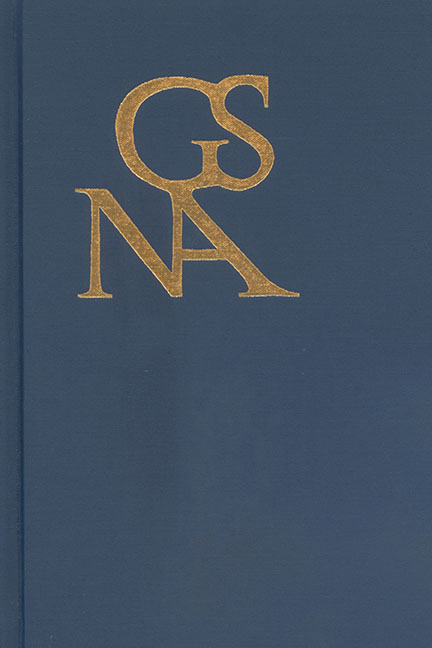Tales of Love and Folly: An Introduction To August Von Kotzebue’s Mein Umgang Mit Dem Schönen Geschlecht
Published online by Cambridge University Press: 28 October 2020
Summary
NOT VERY LONG AGO, the playwright and polemicist August von Kotzebue (1761–1819) was considered beneath the consideration of serious scholars of German literature. If he was remembered, it was as an antipode to Goethe, an exponent of Trivialliteratur, or as the unfortunate though perhaps deserved victim of the student nationalist Carl Ludwig Sand. Despite his enormous literary output and his influence on the cultural lives of his contemporaries, a recent history of German literature mentions Kotzebue not a single time. In recent years this tide has turned, as scholars have discovered the importance of Kotzebue for postcolonial studies, the Baltic Enlightenment, the cultural politics of the Napoleonic era, and debates regarding the meaning and function of literature. The 200th anniversary of Kotzebue's assassination brought forth a number of remembrances that were quite favorable to him, certainly more sympathetic than most of what was written in the immediate aftermath of that event.
Despite the growing interest in Kotzebue's literary and polemical output, barriers exist to a closer study of his life, with most biographers still relying on the accounts in his literary memoir and in the autobiographical pieces that were published after his death. The Kotzebue Nachlass, held in the Staatsbibliothek zu Berlin, is extensive but fragmentary, and there has been no concerted attempt to collect and publish Kotzebue's personal papers and correspondence, which, in any case, are strewn across archives and libraries throughout Germany and beyond. With that said, one key source on Kotzebue's life has remained largely unexplored, despite lying more or less in plain view for many years—namely, the manuscript Mein Umgang mit dem schönen Geschlecht (My relations with the fair sex) which forms part of the Kotzebue Nachlass in the Staatsbibliothek zu Berlin and is published here for the first time.
The manuscript consists of twenty-six pages, written in what looks to be Kotzebue's hand on thin, somewhat transparent paper. Although the manuscript is undated, its opening line indicates that Kotzebue was 56 when he wrote it, placing its origin around 1817. This also means that it was written in the same time period that Kotzebue penned two other autobiographical texts, Betrachtungen über mich selbst (Reflections on myself) and Woher kommt es daß ich so viele Feinde haben?
- Type
- Chapter
- Information
- Goethe Yearbook 27 , pp. 257 - 270Publisher: Boydell & BrewerPrint publication year: 2020



